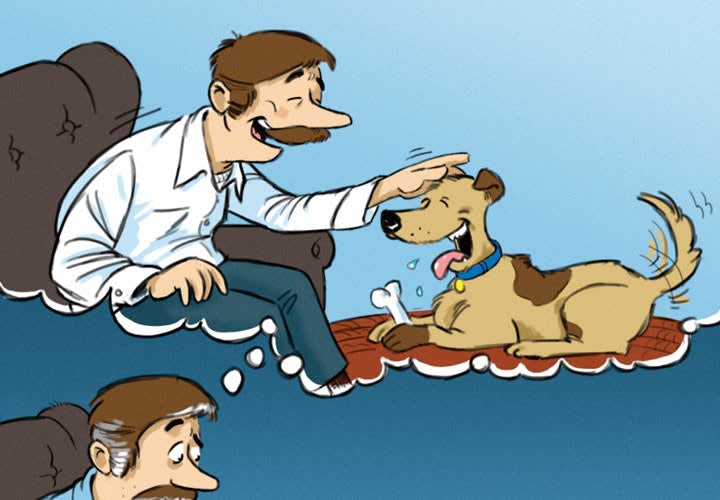Well, I just got back from the vet. Tough trip as it was to drop off the body of my little Cairn Terrier that died last night from cancer. I know, I know, it is just a dog, but it was my dog. The Sarge discovered a lump on our sweet little terrier shortly after our 12-year-old Greyhound had a stroke and died-just two months ago-so it kind of feels like "piling on." I know, I know, it was just a dog, but it was my dog. I am sad but I was sadder a few months ago when they found a tumor in my dad and he died. I know, I know, he was just a dad, but he was my dad.
Each of these events causes little or large wounds to our hearts and to our spirits, and we all face them, it is just part of life. But it seems we have become a society that spends a great deal of time thinking about how bad we feel instead of actually living. I remember when Post-Traumatic Stress Disorder first came into vogue in law enforcement, right after it was "discovered" in 1980. Folks were giving classes, writing articles, and generally worrying about how bad we are supposed to feel after this or that critical incident or traumatic event.
I remember one article in a popular law enforcement magazine that described, second by second, the symptoms of PTSD you were surely going to experience after a shooting. It seemed like a dysfunctional script from "The Twilight Zone," and that's when I really got into studying this stuff.
It seems very few people actually suffer from PTSD; though everyone gets traumatized, the issue is how you deal with it. Folks in our line of work, or in similarly high-stress, high-risk ones, have had to develop attitudes and understanding about this for thousands of years.
A Roman centurion, for instance, carried a copy of "The Enchiridion" by Epictetus in his tunic throughout a campaign. This is a short little text whose theme has been co-opted by hundreds of writers and philosophers since it was written in 98 AD. Here it is: "Control the things you can, let go of the things you can't"...period. You control your aim, your desire, and your opinion; the things in your heart and your mind ... that's it.
Wow, pretty stark, right? But, then he reminds us to understand the nature of things so we can enjoy them, experience them, be rewarded by them in the time that we have. All living things die, so each day a dog is with you find joy in that moment, in that time. We all age (if we are lucky), so find joy in being able to do what you can right now, not fret about aging or what you won't be able to do tomorrow.
The nature of police work is one of great adventure, great crisis, great horror. You will see more and experience more, both good and bad, in five years on the job than the average person will in 70, so don't fear it; embrace it, accept it. It is your path.
Does this mean you're not going to suffer, not going to feel bad, not going to have trauma in your life? Of course not. But everyone suffers losses, as well as joys in life. How we react to all of these things is, in many ways, up to us to choose.
Al Seibert, PhD and author of "The Resiliency Advantage," believes life is filled with stresses, both good and bad, and each one is like an exercise for your soul. As pushups strengthen your arms and chest, stress develops your resilience, your ability to bounce back from the big and little traumas of life. He believes the popular focus on how stressful our jobs are makes the vulnerable among us more vulnerable; they fixate on how bad they feel instead of living, growing, and healing.
I challenge you to think about these things the next time you pet your dog, or hug someone you love. If they bring you joy, be thankful; if they love you, recognize the gift given to you in that moment, and keep it with you. Dr. Seibert believes if we do these things, if we live life fully and focus on what is important and not the bad, then when bad things do happen we will not have Post-Traumatic Stress, but rather Post-Traumatic Growth.
Dave Smith is the creator of "Buck Savage" and a retired law enforcement officer from Arizona. Currently, he is the lead instructor for Calibre Press' Street Survival seminar.













